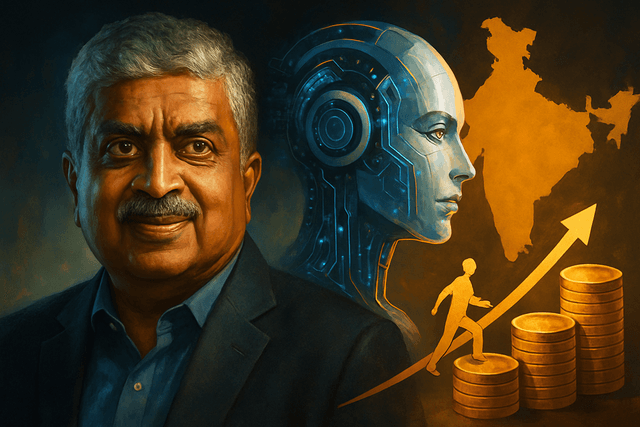Nandan Nilekani, the Infosys co-founder and architect behind India's digital revolution, has taken a pragmatic stance on artificial intelligence's growing influence in society.
"Obviously, there is going to be a concentration of wealth and power with AI... we can't fight that. Forces at play are much bigger than any of us," Nilekani stated at a recent Asia Society event. "But in our zone of influence, we have to do what we can to create a different paradigm."
Rather than joining the expensive race to build ever-larger AI models—a competition dominated by Western tech giants and China—Nilekani advocates for a more democratic approach focused on real-world applications. He believes the future of AI lies not in who builds the biggest systems but in developing smaller, purpose-built models that solve specific problems.
"What I want to see is the application of AI at the population scale," he explained, highlighting opportunities in healthcare, education, and language accessibility. This vision aligns with his previous work on India's digital public infrastructure, including the Aadhaar ID system and UPI payment platform, which prioritized simplicity and scale over complexity.
Nilekani remains optimistic about AI's impact on employment, rejecting the notion that widespread job displacement will necessitate universal basic income. "Some jobs will be affected—certain tasks will be automated—but very few jobs will be entirely eliminated," he noted. "AI will make humans more productive and create new jobs we haven't even thought of yet."
Instead of viewing AI as a replacement for human workers, Nilekani sees it as a tool to "amplify human potential." He emphasizes that skills like first-principles thinking and human collaboration will remain valuable in an AI-driven economy, as these capabilities are difficult for machines to replicate.
As AI continues to evolve, Nilekani urges societies to focus on building high-quality, citizen-focused services that improve lives while remaining mindful of economic realities. "You have to innovate to keep ahead," he concluded. "Otherwise, you will have negative risk-to-rewards and revolutions and so on."

